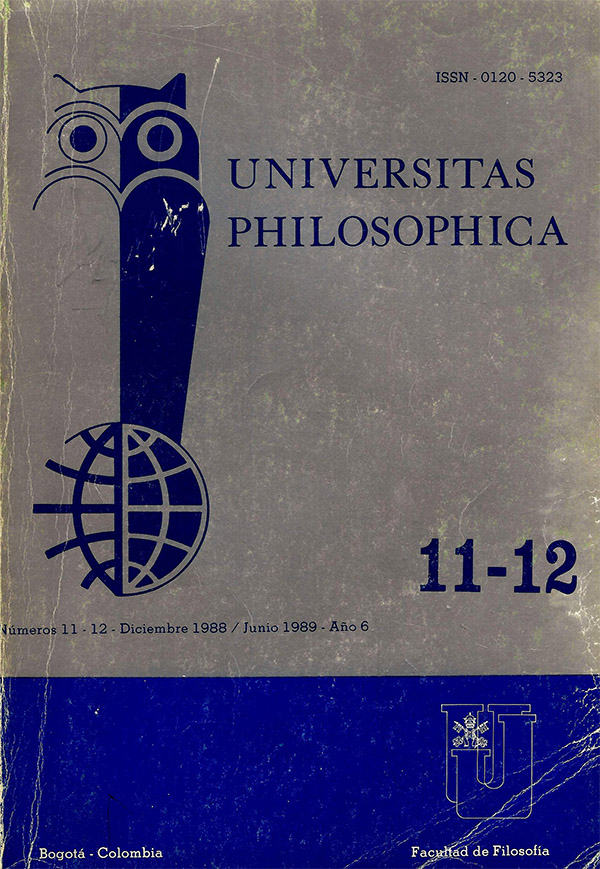Abstract
El artículo señala algunas limitaciones y críticas a la T.A.C. de J. Habermas: por una parte, el interés lógico-pragmático de universalidad que dirige la obra no da cuenta de la tensión dialéctica que la comunicación guarda frente a la incomunicabilidad. Por otra parte, las exigencias comunicativas deben emparentarse con la estructura noética de los actos de sentido a fin de prevenir la inflación pancomunicativa y encontrar en dichos actos su posibilidad y fundamento. A su turno, las pretensiones de validez han de reconocer el trasfondo irreductible de la indecidibilidad y asimetría propio de los interlocutores. Habermas confunde, además, al hipotético locutor solipsista con la subjetividad trascendental y con el sujeto existencial. Mantiene una visión mentalista del sujeto y una consideración fisicalista del mundo externo. Finalmente, al asignar Habermas a la reflexión filosófica el mismo rango de otras teorías de las Ciencias Sociales, tiende a disolverla para enriquecer el capital de la Lingüística y la Sociología de la Comunicación.This journal is registered under a Creative Commons Attribution 4.0 International Public License. Thus, this work may be reproduced, distributed, and publicly shared in digital format, as long as the names of the authors and Pontificia Universidad Javeriana are acknowledged. Others are allowed to quote, adapt, transform, auto-archive, republish, and create based on this material, for any purpose (even commercial ones), provided the authorship is duly acknowledged, a link to the original work is provided, and it is specified if changes have been made. Pontificia Universidad Javeriana does not hold the rights of published works and the authors are solely responsible for the contents of their works; they keep the moral, intellectual, privacy, and publicity rights.
Approving the intervention of the work (review, copy-editing, translation, layout) and the following outreach, are granted through an use license and not through an assignment of rights. This means the journal and Pontificia Universidad Javeriana cannot be held responsible for any ethical malpractice by the authors. As a consequence of the protection granted by the use license, the journal is not required to publish recantations or modify information already published, unless the errata stems from the editorial management process. Publishing contents in this journal does not generate royalties for contributors.


